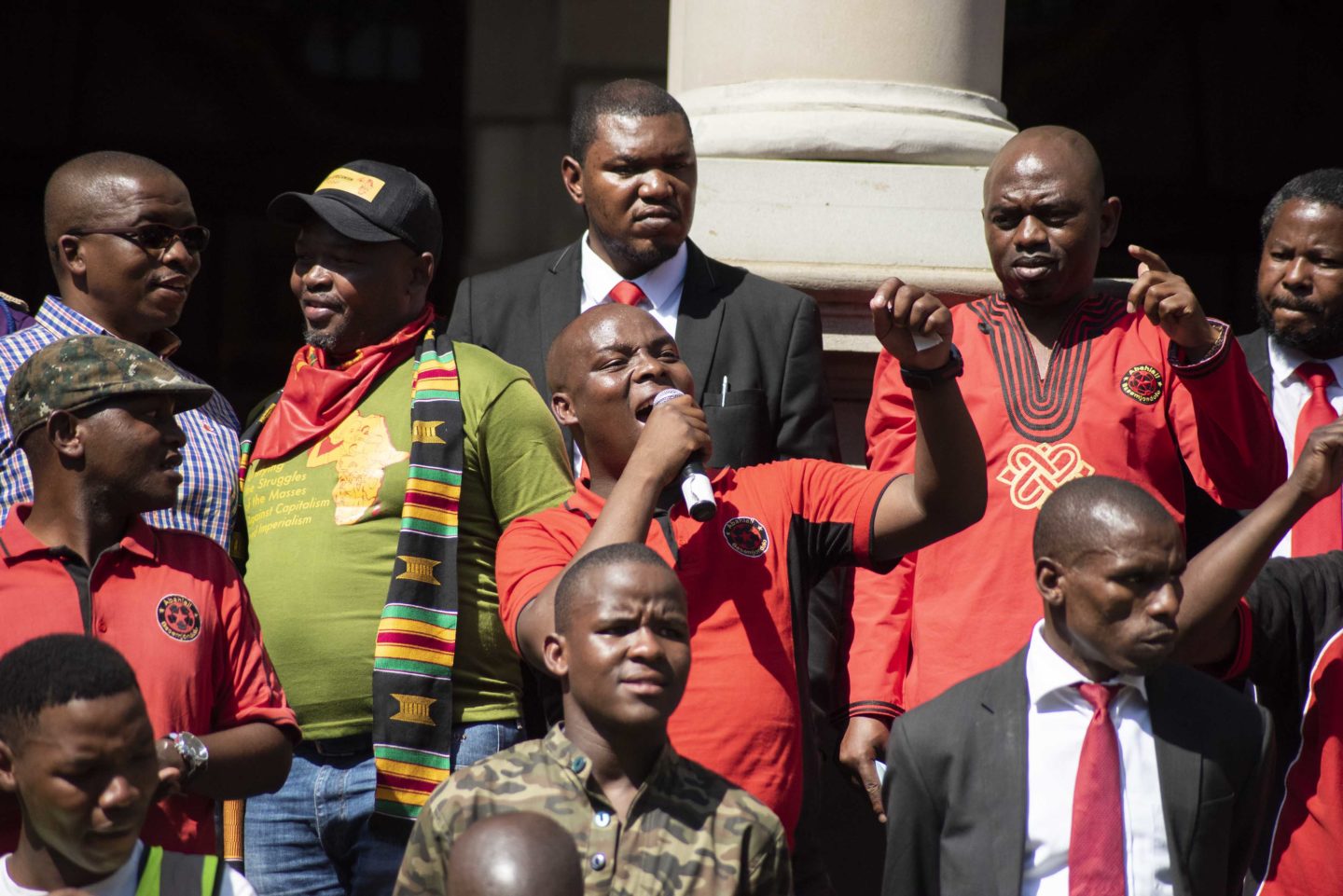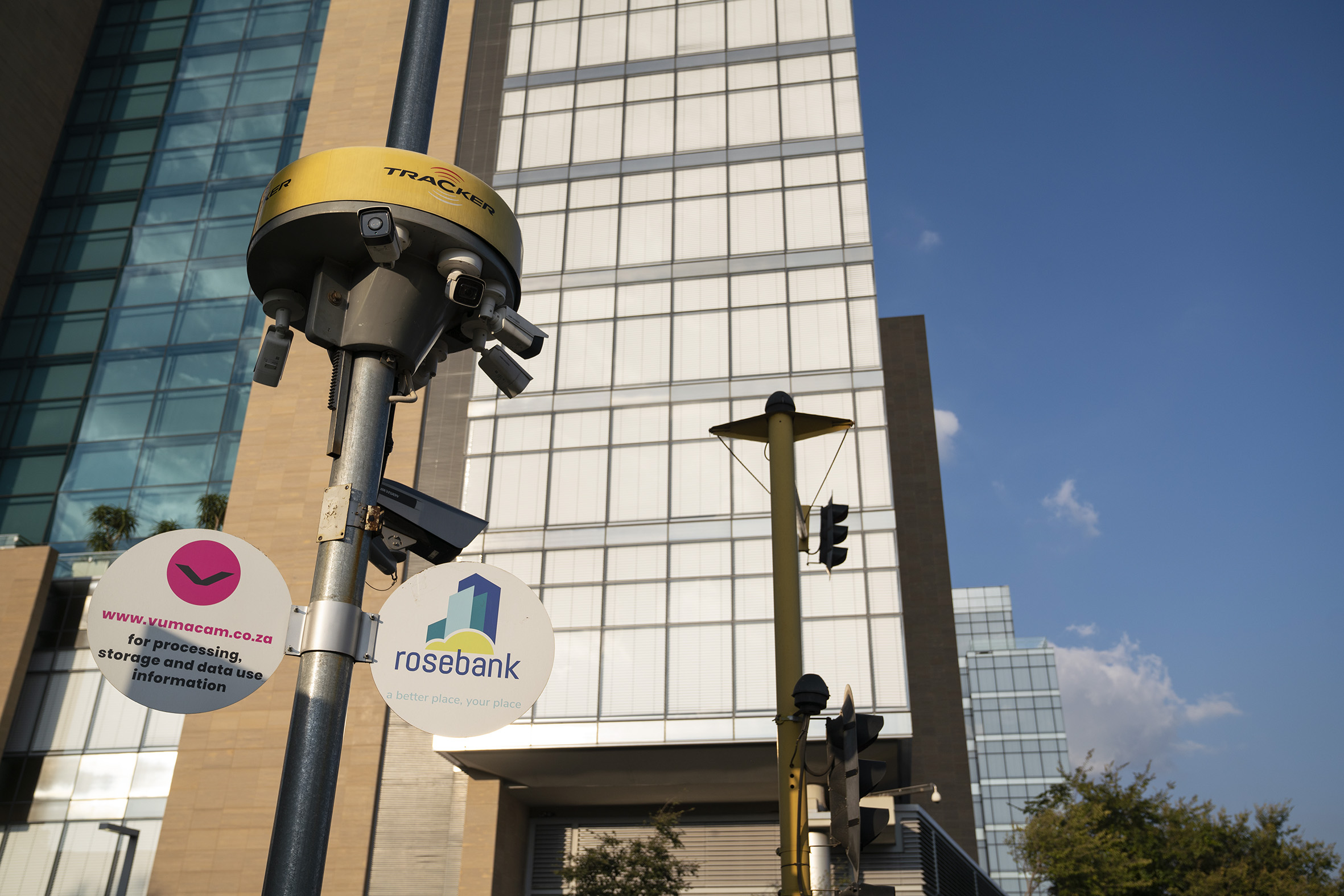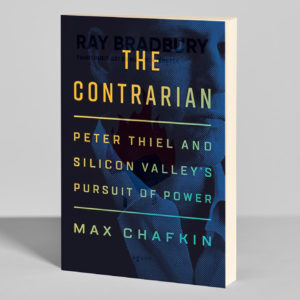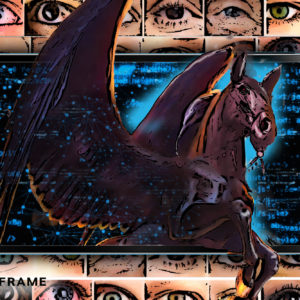Activists under threat from surveillance
Members of social movement Abahlali baseMjondolo allege that the state monitors their phones and emails, tracking their movements and putting them in constant danger.
Author:
3 June 2022

Abahlali baseMjondolo land and housing rights activists say they have become digitally savvy to protect themselves from alleged state surveillance.
For more than 17 years, the movement has endured relentless armed, violent and unlawful state-sanctioned evictions; violent rebuttals of peaceful protests; and push back from local ANC politicians. The leadership of the 100 000-strong organisation has been under siege, and with the rise in communication technology and advances in surveillance, Abahlali’s deputy president Mqapheli Bonono says the movement is being closely monitored.
“Some of us are not highly educated, but we have had to learn things such as Signal,” says Bonono. The communication platform’s end-to-end encryption does not even allow Signal to read people’s messages, and it has no data tracking.

“There are people who are bugging our phones, even with our email addresses we wouldn’t receive messages and we asked people who are technologically savvy and they would tell us the emails are delayed because they are being intercepted, and that’s why we receive them late.
“It’s been difficult for us to protect ourselves against digital surveillance because remember we are just people fighting for rights to land, housing and dignity. We haven’t been exposed to information on advanced technology, so just imagine a person suddenly having to expose themselves to all this because of the nature of our work. Even if you didn’t do a digital course you have to know you can’t click on any link, you can’t log into any Wi-Fi, and so forth.”
Monitoring activists
Human rights organisations and lawmakers have suggested that “safe cities” and cyber laws could pose a new threat to activists. They suggest that there should be reviews and reforms to protect human rights defenders from undue interception of communication, social media monitoring and location tracking through camera surveillance analytics technology.
Bonono says it has become anxiety-inducing to use digital gadgets but the activists have to communicate, organise and mobilise the community. “We are being targeted by capitalists with no regard for human rights. Sometimes we wish we could just stay away from using phones and computers because it’s easy for us to be followed with the location on our devices, which we have to have on for certain apps. We have received threatening calls, some saying, ‘Who do you think you are?’ So it’s a double-edged sword. They are useful, but also I don’t enjoy using gadgets anymore because of the danger it brings into our lives.”
Related article:
Several members of the organisation have been assassinated while others spent months in jail on bogus charges. Some of them have had to go underground and cut off communication with their families for fear that their phones will be monitored and they will be physically followed around. Now with the rise of digital tools at the hands of corporations and the government, the threat to activists is even larger.
An all-seeing eye
Environmental activist Robby Magkala, who has led actions against mines polluting, expanding, and unfairly buying out people, says feeling exposed and insecure wears down activists.
“The threats diffuse the people’s courage and passion,” says Makgala, the coal campaign manager at environmental justice organisation Groundwork. “There are people, especially the leadership, who say I don’t care, I can die for the truth. But others feel they need to retract. Some have families or dependants they have to look after. They know that anything can happen to them. And there are no security measures in place that make them feel protected.
“Even working through the courts is hard because you need resources, so it ends up wearing activists down. We as groundWork do try to educate people on how to handle the courts and even back environmentalists up with resources but it’s a real fight.
“The police are the first to criminalise activists and protect institutions. They quickly break up a protest but they do nothing when activists who oppose mining are threatened. I don’t know of a single case that has been properly investigated. Not even when people were killed. Take the case of Sikhosiphi ‘Bazooka’ Rhadebe, the chairperson of a community-based organisation in Xolobeni, Eastern Cape. He had raised concerns about a titanium mine that Australian company Mineral Commodities Ltd had proposed. More than three years after his murder, no one has been arrested.”

Advancing Rights in Southern Africa states in Computer Crime and Cybersecurity that while cyber laws are crucial “there needs to be a balance that allows the unhampered continuation of the use and enjoyment of the [information and communication technology] … a balance between the interests of law enforcement and the respect, protection, promotion and fulfilment of fundamental rights online must always remain paramount.”
Michael Kwet, a fellow at Yale’s Information Society Project whose areas of research include the global digital economy and smart city initiatives, has raised the alarm at the amount of information surveillance companies are allowed to obtain.
“The surveillance industry has evolved, from old-school fuzzy cameras where the footage is kept in a cassette, and if something happens investigators come in and take hours reviewing that footage. This would also be a one-off like if you have a camera at Mr Price, it’s not part of a wide area network so they didn’t have the power to follow people around and if you did want to do it, there were not enough cameras and you would have to look through footage from each camera, so that put limits on how much tracking you could do.
“The law hasn’t kept up with the times, in my view there should be bans on how much coverage each network has, how many cameras each place has, camera density and bans on video analytics such as facial recognition. There are other video analytics like are you riding a bicycle? Are you walking? Are you running? What you’re wearing, those are things they are developing and they are indexing them. Analytics can give these private companies so much knowledge of what’s happening in public places and so it’s kind of like an all-seeing eye.”
Unregulated bulk surveillance
In the past two decades, there has been an increase in the deployment of video management systems. The South African government has partnered with Vumacam for surveillance. Vumacam has more than 5 000 cameras in Johannesburg and has recently moved to Durban at the request of the eThekwini Municipality.
The surveillance camera company uses artificial intelligence to recognise number plates and “suspicious behaviour”. The company claims it follows all privacy laws, such as the Protection of Personal Information Act, but Kwet says the law is not sufficient as it has clauses that put rights to privacy second and “state security” first, allowing for unregulated bulk surveillance.
The South African Institute of International Affairs (SAIIA) highlights the problematic features of the notion that surveillance will solve crime and suggests that socioeconomic issues are the real problem that needs addressing, not targeting and criminalising the impoverished and marginalised.
City of Johannesburg officials have said in interviews that the use of facial recognition could in the future be used to police “undocumented persons”, and video analytics could be used to police protests. Their vision included the use of predictive analytics in which machine-learning algorithms find patterns and make predictions about future events.
Related article:
“At the same time, officials admitted that they had no studies to show that their video surveillance was curbing crime. In May 2019 the press reported anecdotes and data – provided by the City – alleging that the use of cameras was reducing crime. However, there are presently no independent peer-reviewed studies to confirm this,” South African Institute of International Affairs writes in The City Surveillance State.
Kwet says for digital surveillance to be effective there would need to be cameras in every nook and cranny. “Even if some additional crimes were caught or prevented, ultimately, there would be no shortcuts to fixing the situation. To truly curb violent crime, burglaries and robberies, the country must reduce inequality, poverty, and unemployment.”
Naledi Sikhakhane, is a journalist researching digital surveillance with support from the Media Policy and Democracy Project, run by the University of Johannesburg’s Department of Communication and Media.
She is the 2022 Eugene Saldanha fellow in social justice journalism supported by the Summit Educational Trust.


